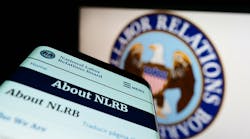Several years ago the Bureau of Labor Statistics (BLS) launched an interesting study. I know, interesting and statistics in the same sentence, who am I kidding? But hear me out. The American Time Use Survey collects data on what people do, and how much time they spend doing it.
Approximately 14,000 Americans age 15 and over reported everything they did on a single day. On average people in this age bracket—employed and unemployed, married and unmarried, with children and without—spend 5.2 hours on sports and leisure, work 3.7 hours, spend 1.8 hours on household activities, and sleep for 8.6 hours (Don’t you wish?).
Some more highlights from the research:
- Employed people work almost eight hours per day on average, men about an hour more than women.
- Married people spend over two hours per day doing household activities, compared to less than one and a half hours for unmarried people.
- People over age 65 spend the most time (7.3 hours) on sports and leisure; and 35- to 44-year-olds spend the least time (4.2 hours) on such activities.
- Watching TV occupies about half of all leisure time (2.6 hours) for both men and women.
- People employed in management, business and financial positions work more days than those in other occupations. (Surprise!)
If you added the BLS averages to what you have to do every day, the total quickly exceeds the number of hours in a day. No wonder complaining about not having enough time is everyone’s favorite topic of conversation these days. We feel like we should be able to spend 1.24 hours eating and drinking, 0.81 hours shopping, 0.50 hours on education, 0.31 hours relaxing/thinking, 0.15 hours volunteering, 0.12 hours praying and 0.75 hours socializing every day, not to mention those 8.6 hours sleeping. Everybody else is.
The report does not analyze how people spend their time on the job. But what if it did? Think about how much time you spend on a single day in meetings (with employees, customers and suppliers), talking on the phone, traveling, reviewing reports, responding to e-mail and generally fighting fires.
We have a limited inventory of time in both our personal and work lives, which is what makes it so valuable. How would your day compare to how an average manager spends his or her time? How would it compare to how a better-than-average manager spends his or her time?
Every business guru has some advice on how we can manage our time better. But like losing weight, which comes down to eating less and exercising more, effectively managing our time comes down setting priorities and being disciplined. The best managers have learned, mostly through experience, how to budget time for their top priorities. They stay focused on those priorities in the face of the day’s crisis and the distractions from modern communication technology that makes all of us available all of the time wherever we go.
Thank you for fitting MHMinto your daily reading time (0.3 hours). Keep us on your schedule.


